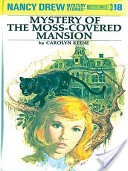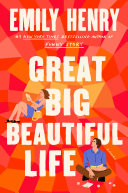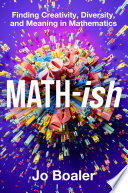From Stanford professor, author of Limitless Mind, youcubed.org founder, and leading expert in the field of mathematics education Jo Boaler comes a groundbreaking guide to finding joy and understanding by adopting a diverse approach to learning math. �Every once in a while, someone revolutionizes an approach to a difficult subject and changes it forever. That is what Jo Boaler has done for math. Fresh, smart, and inclusive, Jo Boaler's strategy eschews the one-size-fits-a-few approach and instead allows math to be seen and solved by everyone. A huge achievement. Math-ish is the only math book I�ve ever enjoyed reading in my entire life. Honestly.� -Bonnie Garmus, author of Lessons in Chemistry Mathematics is a fundamental part of life, yet every one of us has a unique relationship with learning and understanding the subject. Working with numbers may inspire confidence in our abilities or provoke anxiety and trepidation. Stanford researcher, mathematics education professor, and the leading expert on math learning Dr. Jo Boaler argues that our differences are the key to unlocking our greatest mathematics potential. In Math-ish, Boaler shares new neuroscientific research on how embracing the concept of �math-ish��a theory of mathematics as it exists in the real world�changes the way we think about mathematics, data, and ourselves. When we can see the value of diversity among people and multi-faceted approaches to learning math, we are free to truly flourish. Utilizing the latest research on math education, Jo guides us through seven principles that can radically reframe our relationship with the subject: � The power of mindset on learning � Utilizing a visual approach to math � The impact of physical movement and communication on understanding � Understanding the value of an "ish" perspective - in mathematics and beyond � The importance of connected and flexible knowledge � New data on diverse teaching modes that work with different learning styles, not against them � The value of diversity in learning mathematics�and beyond When mathematics is approached more broadly, inclusively, and with a greater sense of wonder and play�when we value the different ways people see, approach, and understand it�we empower ourselves and gain a beneficial understanding of its value in our lives.
(less)From Stanford professor, author of Limitless Mind, youcubed.org founder, and leading expert in the field of mathematics education Jo Boaler comes a groundbreaking guide to finding joy and understanding by adopting a diverse approach
(…more)











